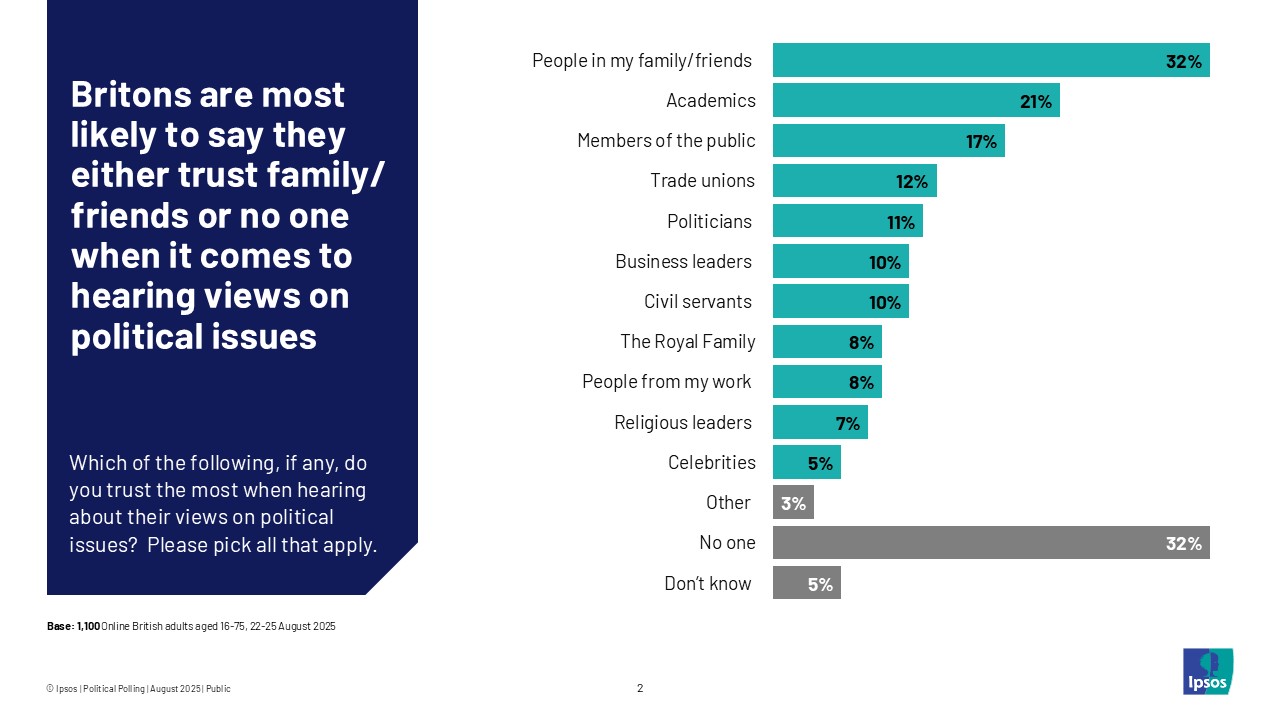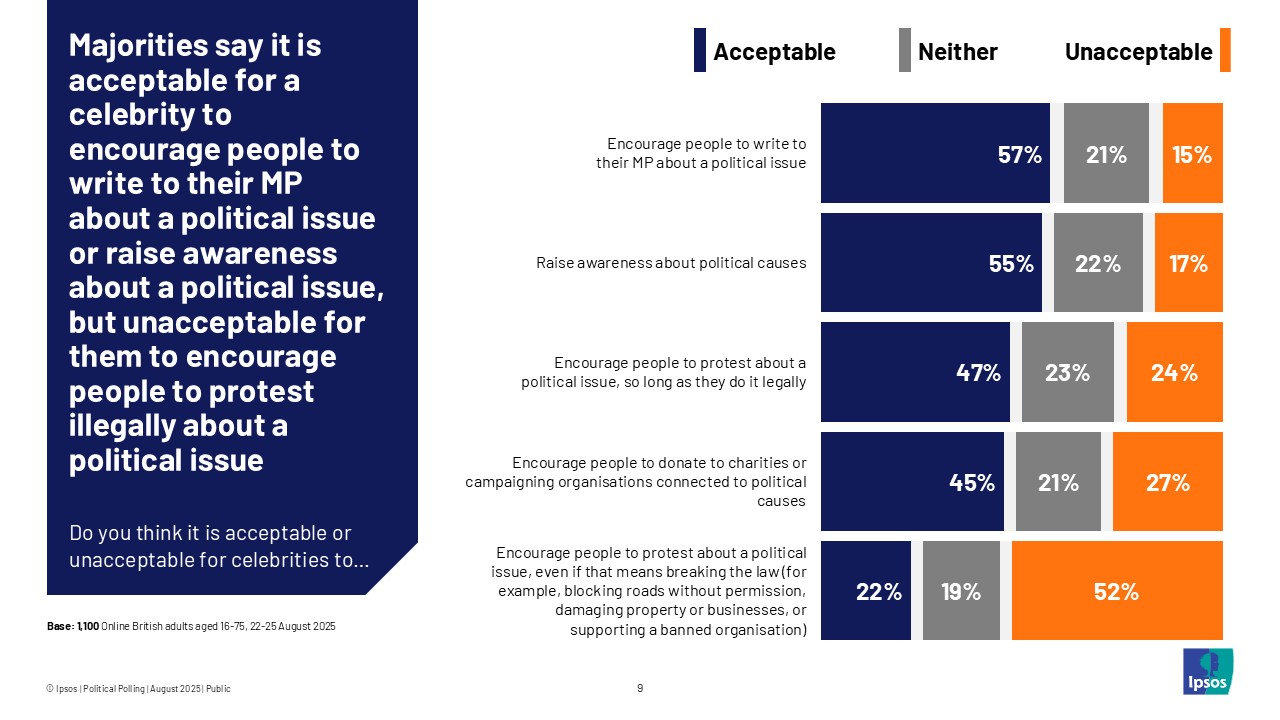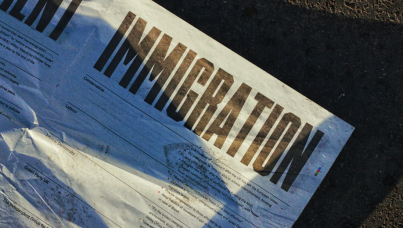Few Britons swayed by celebrities taking political stances, Ipsos poll finds
A new poll from Ipsos in the UK reveals that when it comes to political issues, Britons are most likely to trust the opinions of their friends and family over celebrities, with few saying a celebrity changed their view on an issue.
Key findings
- Trust lies close to home, or with no one: Britons are equally likely to say they trust their family and friends (32%) the most for views on political issues as they are to say they trust no one (32%). Academics are the next most trusted group (21%), while only 5% say they trust celebrities the most. Only one in ten (11%) say they trust politicians most on political issues.

- Appetite for more political commentary is low: A third of the public (35%) state they are not interested in hearing more about political issues from any of the groups surveyed. Only 8% are interested in hearing more from celebrities, compared with 20% from academics and 19% from family and friends. There is also little appetite to hear politicians’ political views – only 13% say they want to hear more from them.
- Most ignore celebrity political causes: Three in five Britons (60%) say they have not paid attention to a celebrity expressing their views in support of a political cause. One in five (19%) say they have paid attention to a celebrity expressing views in support of a political cause that they also believe in, while 14% say they have paid attention to a celebrity expressing views on a cause that they are opposed to.
- Impact on the cause is minimal, but the celebrity's reputation is at stake:
- When a celebrity supports a cause that someone already supports, over half (55%) say it has no impact on their views of the cause. However, it significantly boosts the celebrity's image, with 61% viewing them more positively.
- When a celebrity supports a cause that someone is opposed to, 60% say it has no impact on their views. It has a strong negative effect on the celebrity’s reputation, however, with 58% viewing them more negatively as a result.
- Acceptable activism has its limits: A majority of Britons think it is acceptable for celebrities to encourage people to write to their MP (57%) or raise awareness of political causes (55%). However, while 47% say it is acceptable for celebrities to encourage legal protest, 52% believe it is unacceptable for a celebrity to encourage protests that involve breaking the law.

Commenting on the findings, Keiran Pedley at Ipsos said:
While celebrity endorsements can generate headlines, their actual impact on public opinion appears to be minimal and can even be counterproductive for the celebrity's own image if they are seen to be on the wrong side of an issue. The data suggests that for most people, political views are shaped closer to home, by conversations with family and friends, rather than by the social media posts of famous figures. This is a crucial insight for campaigners and organisations who might look to celebrity endorsements as a shortcut to public support.
Technical note:
- Ipsos interviewed a representative sample of 1,100 adults aged 16-75 across Great Britain. Polling was conducted online between the 22nd-25th August 2025.
- Data are weighted to match the profile of the population. All polls are subject to a wide range of potential sources of error.




